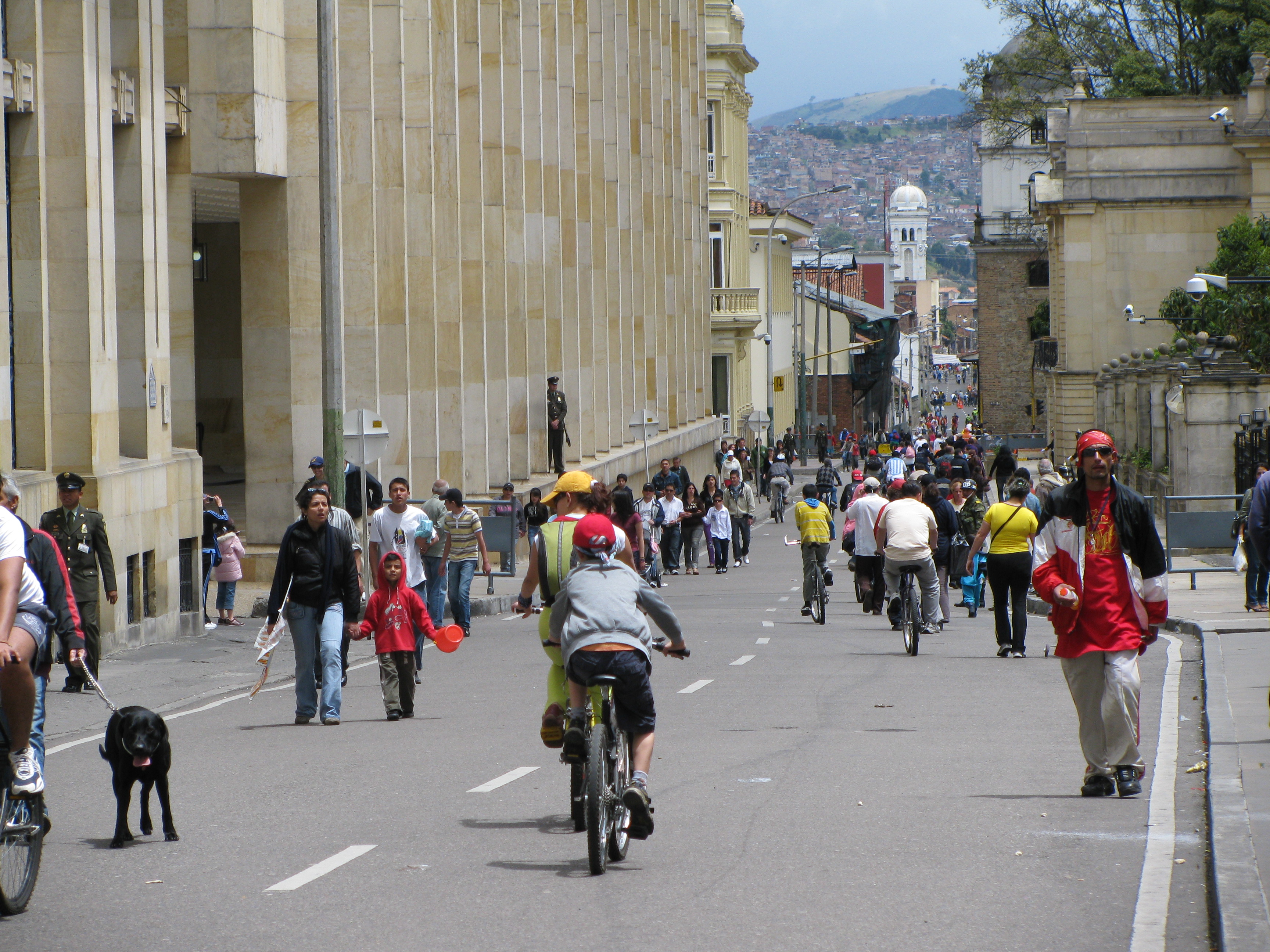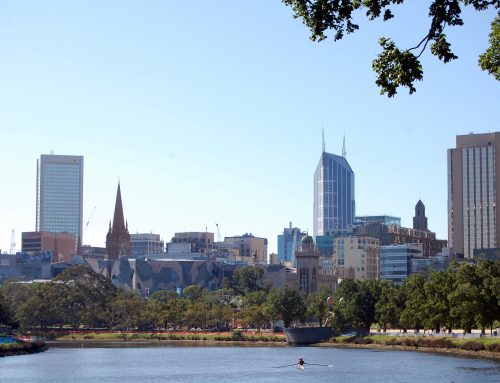Cyclovia is an institutionalised event in Bogota where each Sunday and public holiday over 100 km of roadway are closed to car traffic for seven hours to create a ciclovia (“cycling way”) for cyclists, skaters, runners and walkers. On some Sundays, as many as a million and a half people, or about 20% of Bogota, use Ciclovia to relax, excercise, and connect with others. By promoting the use of roads as public space, not just spaces for car owners, Ciclovia enhances social equity.
Bogota’s cyclovia began in the early 1970s though the efforts of cycle activists, and then became a offical programme supported by the city government, and has now become a huge attraction. The size of Cyclovia brings out local entrepreneurs, food vendors, and other activities occurring in parks and street sides. Cyclovia encourages healthy and environmentally friendly activities, by making it fun and accessible.
Despite some attempts to halt Cyclovia in Bogota, broad popular support, has enabled it to persist in Bogota. Cyclovia has been mutually supported by Bogota’s expanded public transport systems and investments in cycle infrastructure.
[vimeo 12564994 w=640 h=480]
Ciclovia: Bogotá, Colombia from STREETFILMS.
From its origins in Bogotoa in the 1970s, Cyclovia has spread to over a 100 cities around the world, known as both Cyclovia and Open Streets. Cycolvia has been studied, often along with Bogota’s investments in bicycle infrastructure – Cicloruta. One economic study of Cyclovia in multiple cities found that health benefits alone are several times the costs of operating the events. The success of Cyclovia in many cities has provided a toolbox of practices that can be adapted to many different cities, which has further expanded its adoption by more cities.
[vimeo 78886448 w=640 h=360]
The Rise of Open Streets from STREETFILMS on Vimeo.
Cyclovia has grown and spread around the world, and at least to some extent, changed how its participant use and engage with public space in cities.



